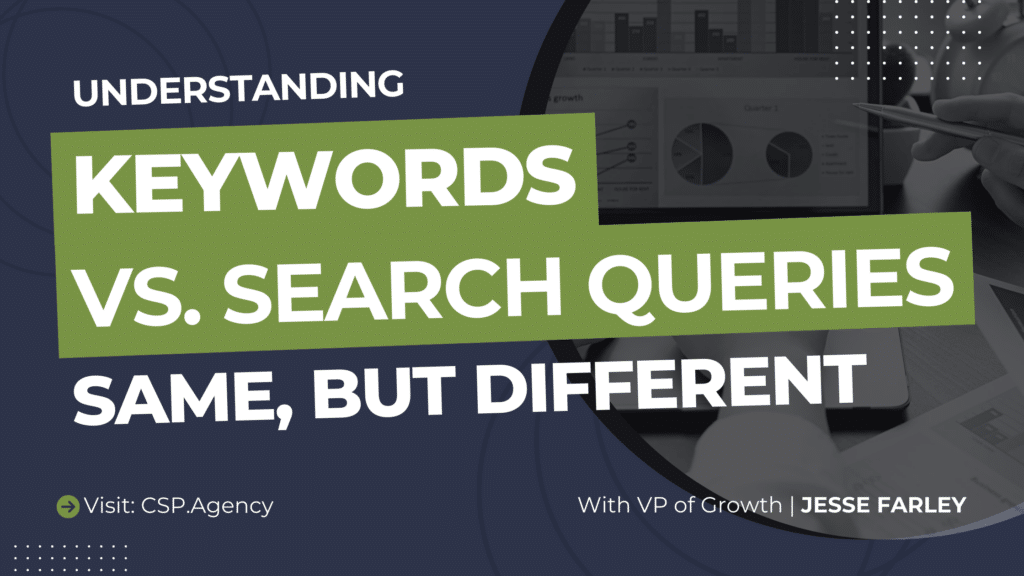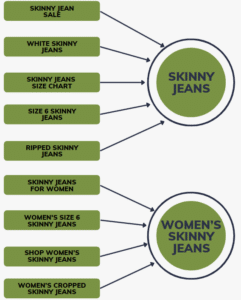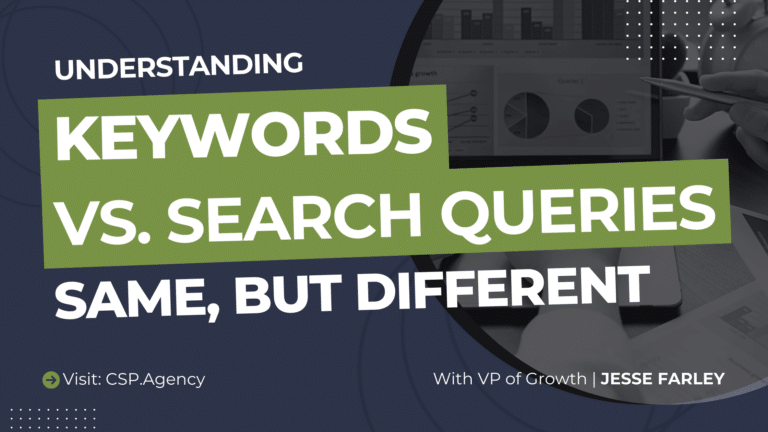In everyday conversation, “keyword” and “search query” are often used interchangeably, but they actually refer to different concepts. So, what sets a keyword apart from a search query?
Keywords are abstract ideas that represent the ideal version of what people might search for. They are broad concepts derived from various search queries.
On the other hand, search queries or search terms are the exact words or phrases that users type into a search engine. A search query is the real-world application of a keyword. It might be misspelled, have words in a different order, include additional terms, or sometimes match the keyword exactly.
For search marketers, keywords are what we focus on:
- In SEO, we optimize on-page content by incorporating keywords into URLs, title tags, body copy, image file names, meta descriptions, and more. We also build inbound links using keywords in the anchor text.
- In PPC, we bid on keywords and use them in ads and landing pages.
Search queries, however, reflect the actual terms people use to find content through paid and organic search.
For example, if you’re bidding on the keyword “blue bunnies,” your search query report in AdWords will show all the terms users typed in to trigger your ad. With broad match, this might include the exact keyword and variations like “jeans skinny,” “women’s blue bunnies,” “dark blue bunnies,” or “big blue bunnies.”
If you notice a clear, recurring pattern in these search queries (e.g., “female blue bunnies”), you might create an ad group and corresponding ads for that search query. At this point, the search query effectively becomes one of your keywords.
Search queries cover a broader spectrum than keywords. By analyzing search queries, we can identify new keywords to target in search marketing campaigns. (Search query mining is also a valuable technique for identifying negative keywords.)
Want to learn more about making content that will convert? Speak with an SEO expert today and see how your website can be improved and stay ahead of the competition.


